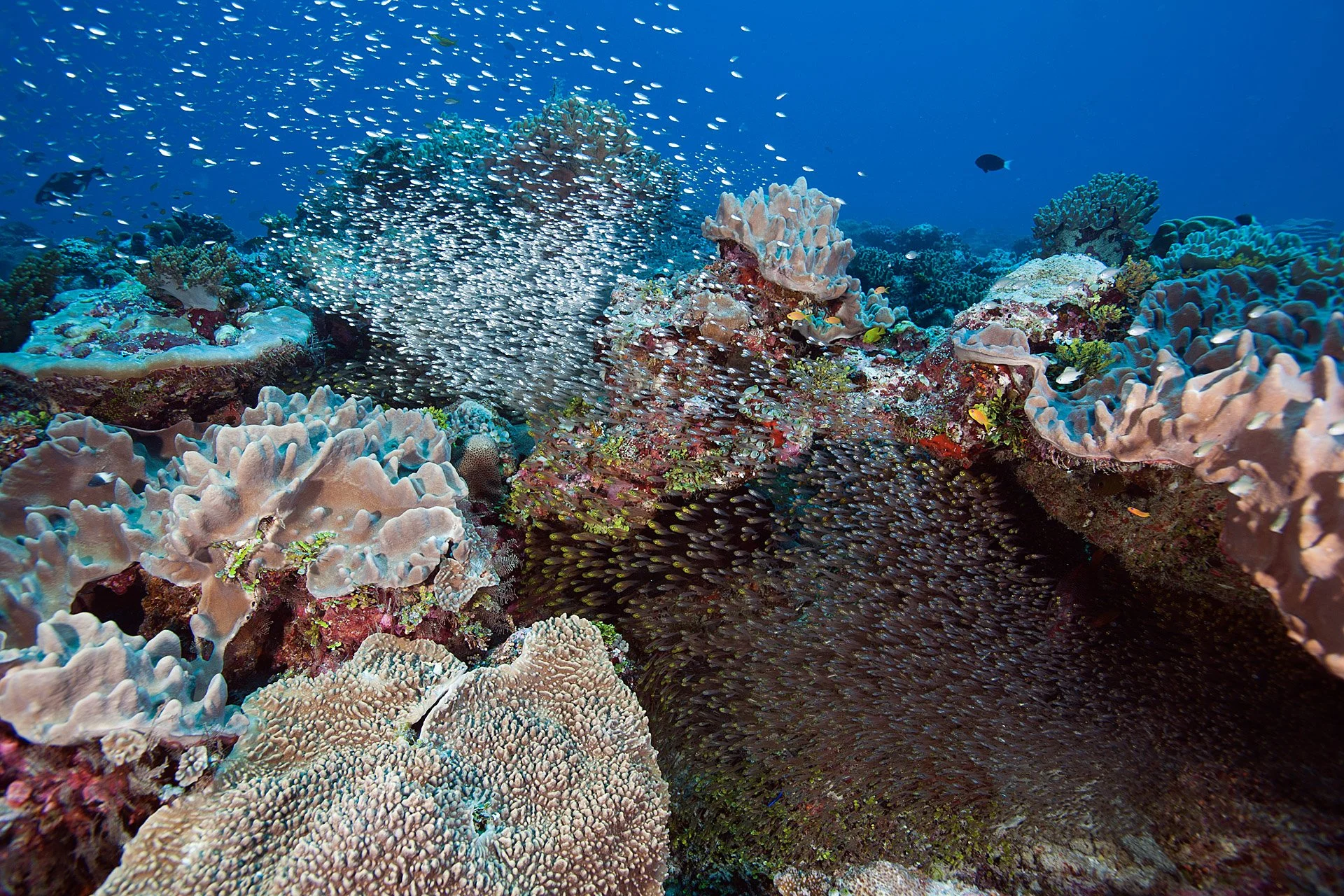The Living Ocean Foundation's Global Reef Expedition
From 2013 to 2015, I was fortunate enough to have traversed a good portion of the Pacific and Indian Oceans as a fellow with the Khaled bin Sultan Living Oceans Foundation.
My goal on these expeditions was to sample the model coral for research Pocillopora damicornis/acuta at a variety of environmental conditions and health states (i.e., healthy, bleached, diseased) in order to gain insight into the environmental physiology of this species. In the process, I designed a molecular biomarker-based diagnostics test for assessment of coral health, then using machine-learning to make predictions about coral climate resilience.
But surely more can be done with these precious samples (which also includes Seriatopora spp.); for a list of all available for sharing, click here (more detailed) or here (less detailed). I have included a table below that shows where I am in the sample and data processing. Otherwise, here is a list of the locations I visited with LOF (linked to the pages where you can find more information):
1. French Polynesia (Austral Islands & Moorea) 2. Cook Islands 3. Fiji 4. Tonga 5. New Caledonia 6. Great Barrier Reef (northern, Coral Sea) 7. Solomon Islands 8. Palau 9. Chagos
For beautiful, detailed habitat maps of all reefs surveyed on the GRE (barring Palau & Chagos), go here (the associated manuscript can be downloaded here.). I am currently working on a more holistic analysis of the entire dataset.
The largest coral reef survey ever undertaken
Sampling a Pocillopora verrucosa colony in Palau
M.Y. Golden Shadow in Palau
I am working as hard as possible to get these data out, but if anyone is interested in samples, data, images, etc. please let me know: anderson@coralreefdiagnostics.com. Also, please note that I included Taiwan and the Maldives in this table, though they were not part of the GRE. What I want to do is create something like what Judy Lang and her team (AGRRA) have done and create “report cards;” whereas theirs are “coral reef reports cards,” I would like to generate “reef coral report cards” (see image below.) that speak to the health of the corals themselves (rather than the entire ecosystems).
By the time this concept becomes a reality, I do worry that is might already be too late….
Seriously, look how beautiful (and informative) these AGRRA reports are.










